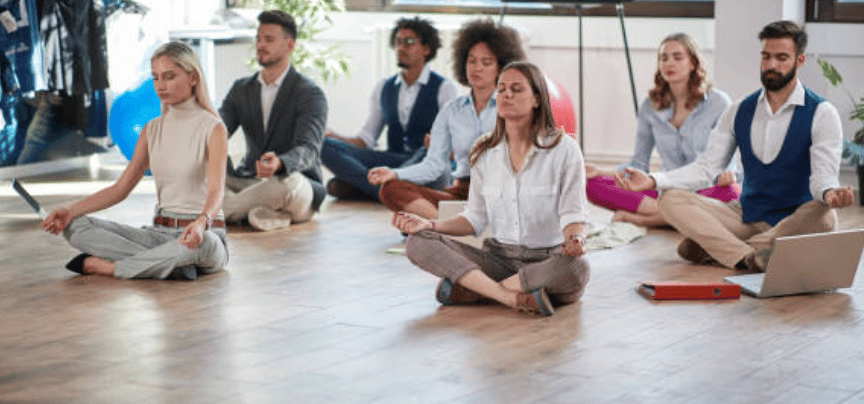Mindfulness in the Workplace: A Modern Advantage, Not a Luxury
As organisations across the globe face rising stress levels, burnout, and disengagement, mindfulness has emerged as a powerful and practical solution. Far from being a passing trend, it’s now a key strategy for enhancing employee wellbeing, boosting performance, and cultivating resilient, human-centric workplaces.
Tomek Joseph
3/14/20251 min read
What Is Mindfulness, Really?
Mindfulness is the practice of paying deliberate attention to the present moment—without judgment. In the workplace, this translates to being fully engaged in a task, aware of your emotional state, and responsive rather than reactive.
It’s not about being calm all the time.
It’s about being clear, present, and emotionally intelligent—even in the face of deadlines, pressure, and complexity.


The Science Is Clear
Research from Harvard, the University of Massachusetts, and leading neuroscience institutions confirms the benefits of mindfulness at work:
Reduces stress by 32%
Improves focus and decision-making
Boosts emotional regulation and empathy
Increases resilience and job satisfaction
In fact, companies like Google, SAP, Intel, and General Mills have integrated mindfulness training into their employee wellbeing strategies—with measurable improvements in performance, collaboration, and morale.
Why It Matters for Organisations Today
While mindfulness can start as a personal practice, its true power lies in its ripple effect. When teams embrace mindfulness—through structured training, mindful meetings, or leadership modeling—it transforms the culture.
It encourages presence over multitasking. Listening over assumption. Self-regulation over reactivity.
That’s where organisational growth begins.
Getting Started: Simple Practices with Big Impact
You don’t need an hour-long meditation to experience the benefits. Try these bite-sized workplace mindfulness practices:
Mindful Transitions: Take 60 seconds between meetings to reset.
Focused Work Blocks: Eliminate distractions and set a timer for deep work.
Mindful Listening: In your next meeting, fully listen without planning your response.
Breathing Breaks: Use your breath to regulate your nervous system during tense moments.
These practices take no extra time—just intention.
Final Thought: The Competitive Advantage Is Human
In a world where innovation and agility are prized, the most sustainable advantage isn’t more hustle—it’s more humanity.
Mindfulness isn’t a soft skill. It’s a core leadership asset. A culture-builder. A burnout buffer. And perhaps, one of the smartest investments you can make in your organisation’s future.


